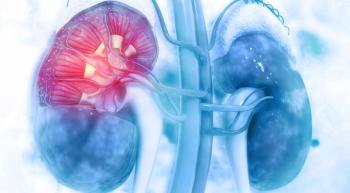
- December 2012
- Volume 6
- Issue 8
Helping Prostate Cancer Patients to Make Informed Treatment Decisions
Information is key, as patients with early-stage prostate cancer typically choose among three standard treatment options: watchful waiting/active surveillance, surgery, and radiation.
Frank delaRama, RN, MS, AOCNS®
If there were just one takeaway about prostate cancer navigation that Frank delaRama, RN, MS, AOCNS®, would like his peers attending NCONN 2012 to remember, it would be the important role they have in helping patients make informed decisions about their treatment.
A strong advocate for empowering patients through a shared decision-making (SDM) model, delaRama, clinical nurse specialist with the Cancer Care Centers, Palo Alto Medical Foundation, noted that prostate cancer is different from other cancers in many respects, and that in its early stages, physicians are not always able to determine how the cancer will act. Information is key, as patients with early-stage prostate cancer typically choose among three standard treatment options: watchful waiting/active surveillance, surgery, and radiation—the latter two options carrying the risk of both physical and psychosocial side effects.
For later-stage patients, “again, it’s all about information and education, whatever the stage is,” delaRama stressed. Logistics remain important supports that the oncology nurse navigator (ONN) can provide—for example, making sure patients get to their appointments, setting up a timeline for scheduling them, and assisting with transportation needs—but he also sees a vital role for ONNs in arming patients with information, resources, and decisionmaking tools that will help them in choosing the best options for their own treatment (See below).
OncLive TV Exclusive
He suggests patients use an SDM process to make their treatment choices, starting with having all relevant clinical information on their cancer, knowing the treatment options, and then prioritizing goals and outcomes, such as removing the cancer, avoiding long-term side effects, maintaining quality of life, convenience, and cost. “We are not giving medical advice, but rather giving patients tools to come to an informed decision—a decision that they will own,” said delaRama.
“In prostate cancer, the ONN provides a unique, valuable service as an SDM coach. Patients who use SDM are more satisfied with their treatment decisions, regardless of outcomes,” he concluded.
Prostate Cancer Resources
- Prostate Cancer Foundation
- Palo Alto Medical Foundation
- LIVESTRONG
- Informed Medical Decisions Foundation
- Ottawa Hospital Research Institute
Articles in this issue
about 13 years ago
A Surgeon's Perspective on GI Cancer Navigationabout 13 years ago
A Life Redirected: Pursuing a Nursing Career After Osteosarcomaabout 13 years ago
The Benefits of Genetic Testing for Cancer Survivorsabout 13 years ago
Navigating Patients' Chemotherapy Decision Makingabout 13 years ago
Sexual Health Considerations in Cancer Treatment and SurvivorshipNewsletter
Knowledge is power. Don’t miss the most recent breakthroughs in cancer care.


































